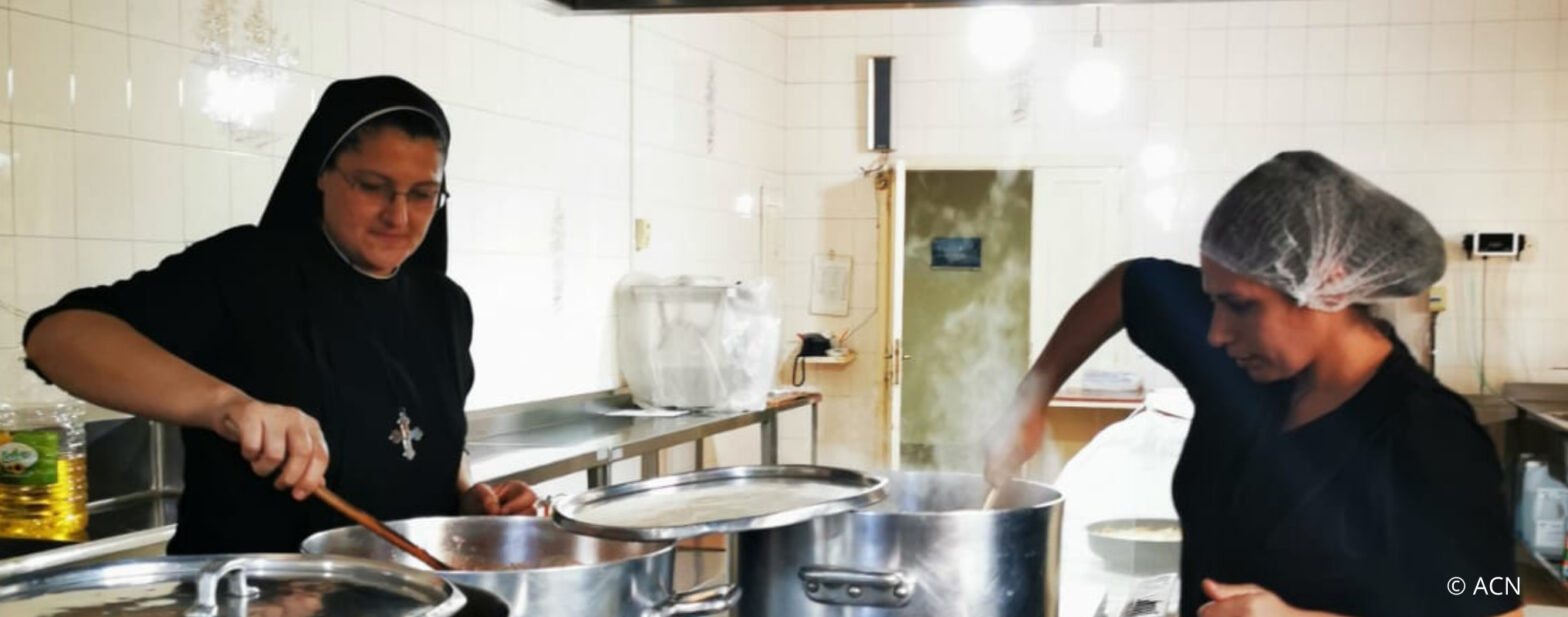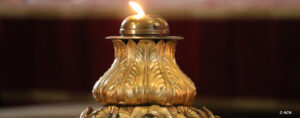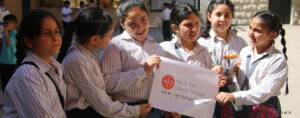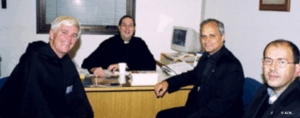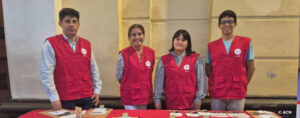In northern Beqaa, the convent of the Sisters of Good Service has been transformed into a refuge for more than 800 people fleeing the bombing. The fifteen sisters from the Melkite Greek Catholic Church are welcoming hundreds of internally displaced people there, offering them not just shelter but also comfort and support.
Since September 23, the intense bombing of the villages around Jabboulé in northern Beqaa, Lebanon, has forced hundreds of people to seek refuge on the grounds of the Sisters of Good Service convent in Jabboulé. “On the first night of the bombing, dozens of people came running to take refuge with us,” recounts Mother Joselyne Joumaa, the superior general of the congregation, to the international Catholic charity Aid to the Church in Need (ACN). “In twelve days, we received more than 800 refugees. We are overwhelmed, and we can’t receive any more.”
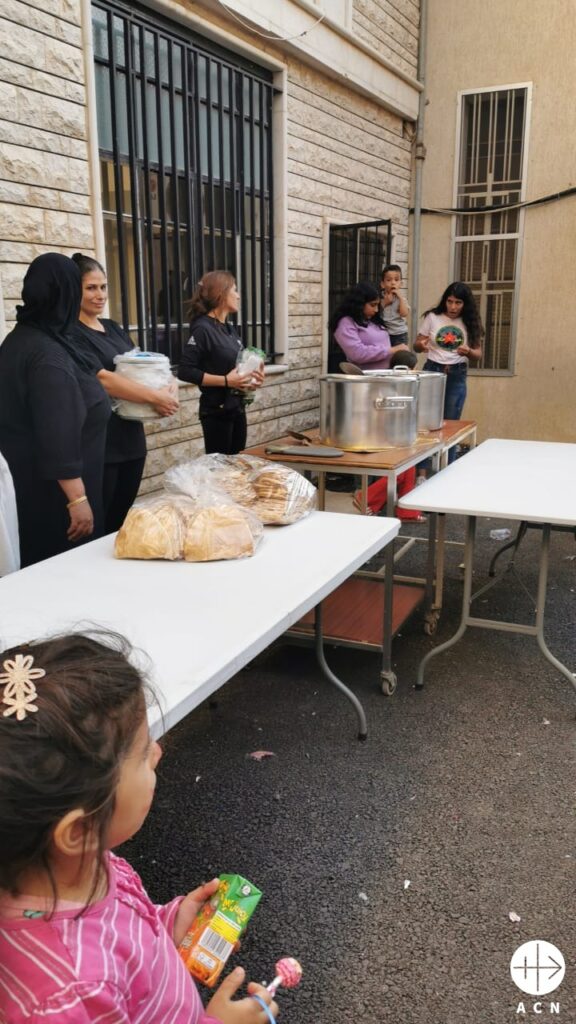
During peacetime, the convent school teaches children of all faiths without distinction, which has enabled the sisters to forge close links with the surrounding Muslim community: “They have such trust that you even often hear the displaced Muslim people say: ‘It’s your cross which will protect us!’”
With the help of ACN, which supports the sisters with emergency aid through the financing of food, medicine, and accommodation, the 15 sisters of the Congregation of Sisters of Good Service in Jabboulé have not only opened the doors of their convent, but also doors of the school and the orphanage which they run. Most of the internally displaced people are Shia Muslims. Some of them have lost everything, but all are marked by fear or trauma, because of the violence of the bombing.
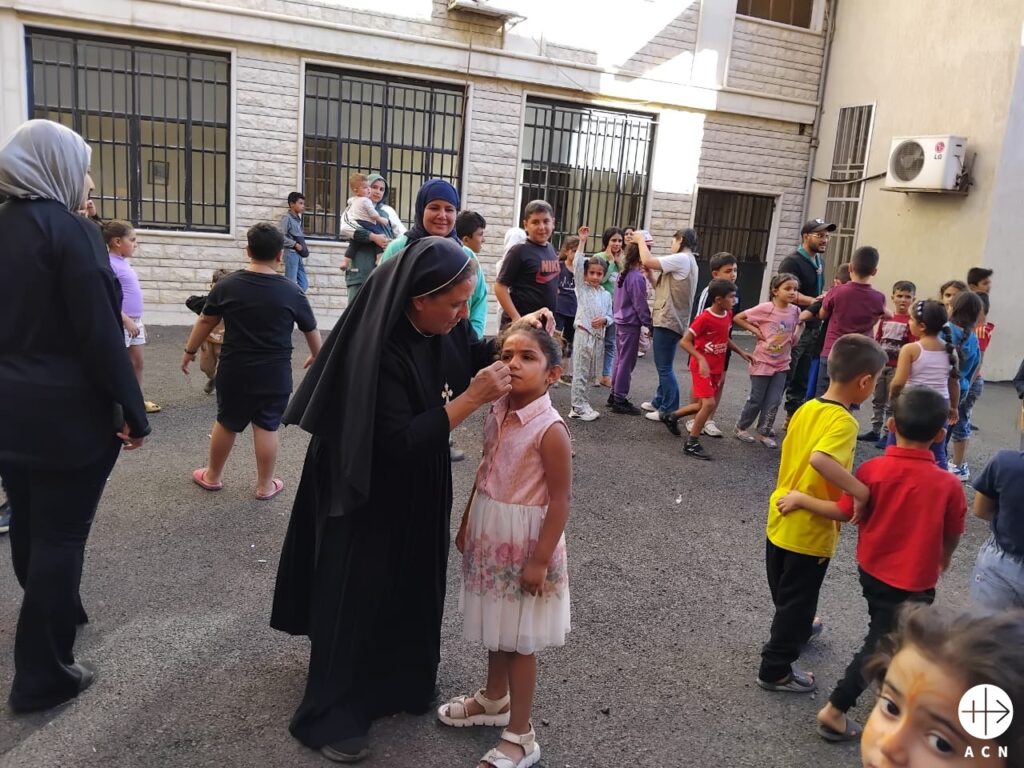
A peaceful harbour in the tempest
With great dedication, the sisters receive the humanitarian aid, sort the boxes, and take care of the distribution; every day they provide breakfast and lunch for the 800 displaced people and take the time to listen to them. “They come to share with us their anguish and their fear of tomorrow,” explains Mother Joselyne. “And we are also listening to them to respond to their material needs, which are many.” Two or three times a week, the sisters organize discussion and play groups, offering the children a semblance of normality in this troubled context.
Many of the displaced people get involved, helping the sisters with the tasks necessary to manage the crisis: the men cut wood for the winter, collect rubbish, and carry the boxes of emergency supplies, while the women help in the kitchen (photo).
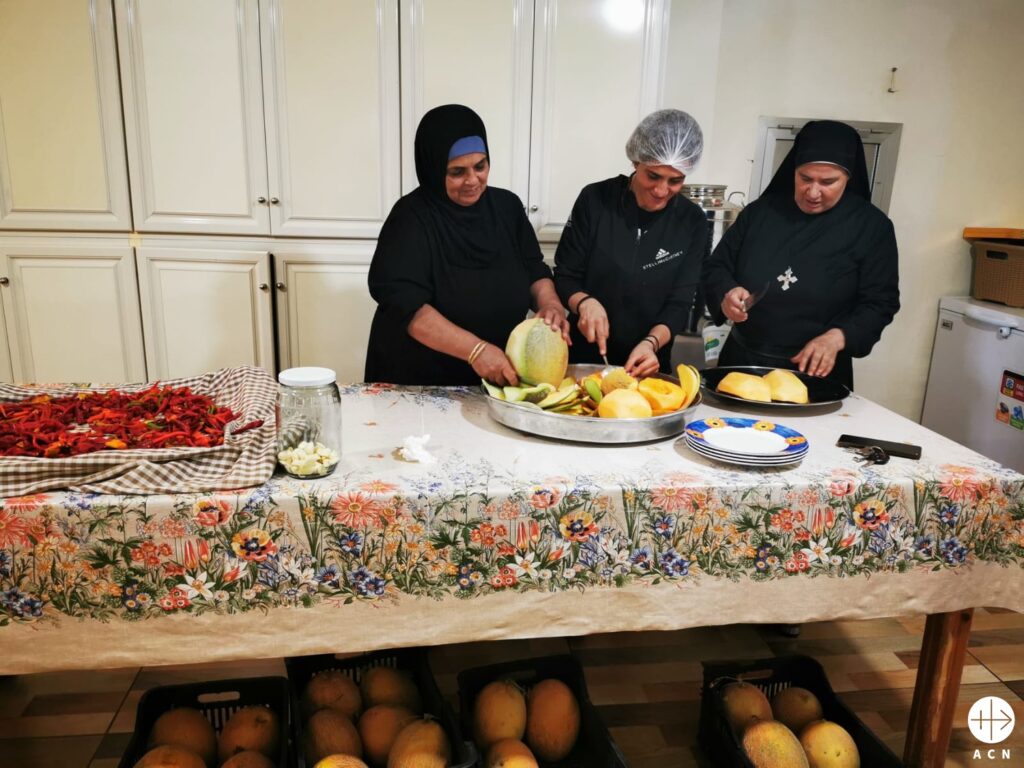
Some of them ask the sisters if they can spend time in their chapel, appreciating the calm and peace which reign there. It is also the place where the sisters find the strength needed to face the daily challenges as concerns multiply. “Winter is coming. How will we provide heating, electricity, hot water?” asks Mother Joselyne anxiously. “It’s a fact: thinking about tomorrow can pull us down because the daily tension is sometimes hard to bear. But our mission is to continue faithfully, and we ask you to support us with prayer,” she says to ACN.
The serenity and the smile of the sisters, even in the middle of a crisis, never cease to surprise the displaced Muslims. Mother Joselyne emphasizes that the sisters’ love and humble service often remind them of the attitude of the Virgin Mary, who is likewise venerated in Islam, which creates a spiritual connection between the two religions. The sisters’ calm spreads to the displaced children, who are often terrified by the bombing. “When the parents themselves, gripped with panic, don’t manage to calm their children, it’s the sisters who take them in their arms and assure them that they are safe because they are in the house of God,” says Mother Joselyne.
To make a donation:

